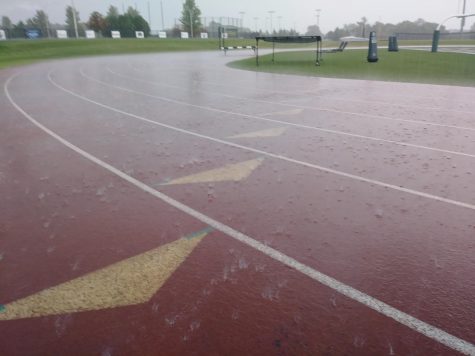COD Denies FOIA Request For More Information Regarding Athletic Probation
October 30, 2018
“Please be advised that your request is denied because it seeks documents exempt from production.”
This was the reply given to the Courier newspaper after filing a FOIA (Freedom of Information Act) requesting the internal audits conducted by the College of Dupage on its athletic department from January 1, 2012 to September 20, 2018.
On the Friday before Memorial Day of the 2018 Fall Semester, COD athletes were informed that as a result of mistakes committed by members of the athletic department fielding ineligible athletes, they would have no opportunity for postseason play. Student athletes who are focused on athletics might want to transfer to another institution that did have a postseason in this instance. However, COD student-athletes were informed about the athletic probation with less than two days before the transfer deadline for the 2018 fall semester. For most student athletes, an insufficient amount of time to viably find a new athletic program and school to transfer to.
Students voiced their disappointment of the unfortunate news but ultimately were powerless to do anything about the consequences levied on the school by the NJCAA. Even though there were no students still attending the institution who played while ineligible, innocent incoming and current student athletes were forced to reap the consequences for the institution’s actions. This was also the situation that new Athletic Director Greg Mcvey was set to inherent as he stepped into the vacated position.
A year without a postseason is more than a disappointment for some student athletes. It’s a lost opportunity for them to show what they can do in a national setting and to scouts so that they’re eventually able to aspire to a larger institutions and participate in athletics there. “The second-years [players] as a whole team put in so much work, but now they do not get the payoff of going to the championships… we get no reward at the end.” said Courtney Kind, freshman basketball player.
During events that significantly impact members of the public, the responsibility to understand the its repercussions and to inform others is a fundamental role of the press, said Courier Adviser James Fuller.
“When things go wrong, particularly at a public institution, it is the duty of journalists to determine what happened, why it happened and hold people accountable to the public for their actions,” Fuller said. “As watchdogs of the College of DuPage, the student journalists at the Courier decided to take on that mission. It begins with collecting all the information available about the situation and the decisions made. I have advised the students about all the options available to them to obtain such information, including seeking the help of the Illinois Attorney General’s office and the Student Press Law Center.”
The College of Dupage has, in their press releases and comments on the subject, conveyed that they have been forthright in what has occurred and has taken perso

nal pride in their integrity when they self report the errors to the NJCAA. Ann Rondeau, the president College of Dupage, in her statement regardi
ng the probation said that, “In our continued commitment to strengthen transparency throughout the College and develop additional systems to increase internal controls, I am grateful for the hard work that many of you have done to further enhance these efforts.”
The affected public has a general idea on how ineligible student-athletes were fielded by the school. Jennifer Duda, News Bureau Coordinator for the College of Dupage, during an interview with Mcvey described it as a “processing error.” The proper paperwork was either not acquired or processed properly so that an unknown number of athletes were illegible.
The college has not yet answered questions about who is responsible and how future errors will be avoided.
During the same interview with Mcvey, the Courier asked about the involvement of former Athletic Director Paul Zakowski and what role he played in the school’s processing errors and whether or not it had to do with him no longer being employed at COD. Duda sat in the interview and answered the question for Mcvey by saying, “that’s a personal issue, and we do not comment on personal issues.”
The answer provided no public information about how those responsible for the violations have been reprimanded, if at all.
The FOIA request filed by the Courier asked for the internal audits conducted on the institution’s athletic department to help provide that information. COD has decided not to release their internal audits of the athletic department. The Freedom of Information Act allows for some limited exceptions to the release of public information. It does not require that such information is kept from the public.
The Courier staff seeks the internal audits to help shine light on exactly what errors the institution found when they themselves conducted the internal audit. Perhaps more importantly, it could identify who might be responsible for the errors so that the affected public could finally know who is responsible, or at the very least have confidence that this will never happen again.
The Courier will now request the Illinois Attorney General’s Public Access Counselor review COD’s decision to deny the FOIA. It also plans to file additional FOIA requests seeking alternate information pertaining to the overall subject of the athletic probation.

















